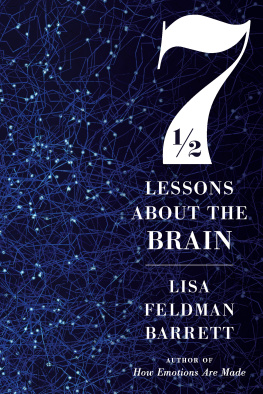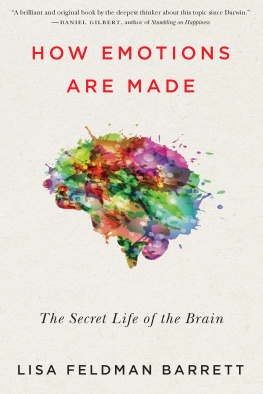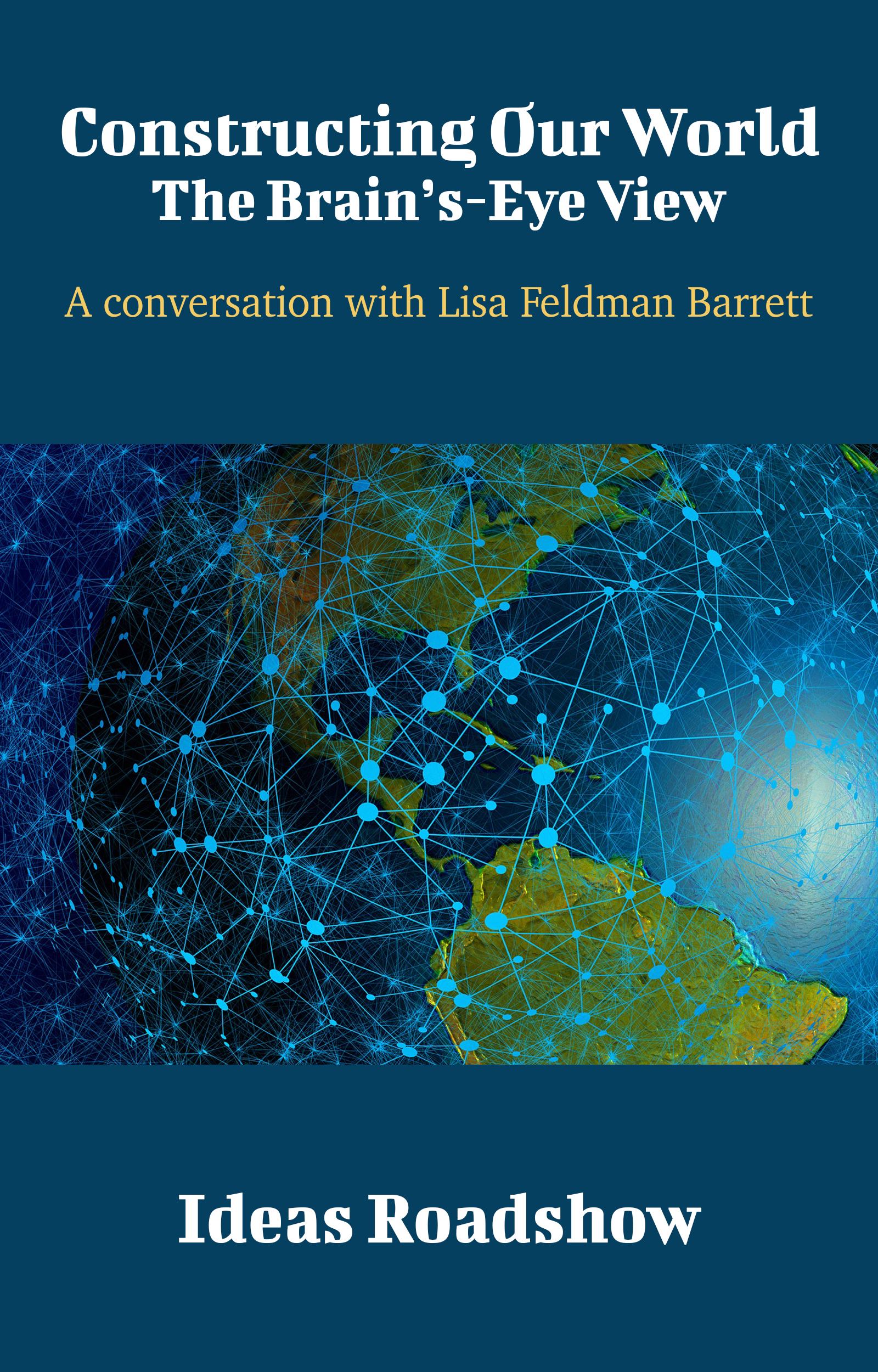The contents of this book are based upon a filmed conversation between Howard Burton and Lisa Feldman Barrett in Boston, Massachusetts, on August 30, 2015.
Introduction
Putting the Pieces Together
One of the fascinating aspects of having the opportunity to talk to lots of different people about lots of different things is that you start seeing interesting connections when you least expect it.
I knew that Lisa Feldman Barrett was a highly accomplished scientist before I sat down to talk to her, but I hadnt fully appreciated how reflective and wide-ranging she was, and I certainly hadnt expected that wed spend as much time talking about structural and philosophical approaches to scientific inquiry as we did. Of course, we met a couple of years before her bestselling popular book, How Emotions Are Made: The Secret Life of the Brain, came out, so all I had to go on were strong recommendations from colleagues and various academic papers.
Id imagined that we would focus on the specifics of her scientific work on emotion, such as her pioneering Conceptual-Act Model, and thats the sort of thing I had read about going into the discussion. But very quickly things took a most interesting turn.
Ernst Mayr made a very important point, which psychologists havent quite embraced yet, that Darwins greatest contribution is not the concept of natural selection: its the idea that a species is a conceptual category.
Its not a physical category with necessary and sufficient features, and firm boundaries, and a biological essence. In fact, thats sort of the dog-show version of evolution: like theres a perfect cocker spaniel and all the other variations of cocker spaniels are some kind of error, because there really is a pure, Platonic form of cocker spanielness that you see in award-winning cocker spaniels who have exactly the right nose size, and exactly the right coat thickness, and so on.
One of Darwins points was that a species is a conceptual category because the instancesof cocker spaniels, lets sayvary from one another, and that variation is meaningfulits meaningfully tied to the situation, to the environment.
The idea that variability is meaningful, and that really all biological categories are actually conceptsbecause, within a category, things can vary quite a bit, and the name of the category refers to a collection of things, a population of thingsis called population thinking. This is why natural selection worksprecisely because such variability actually exists and is important.
Suddenly, I started thinking of an entirely different conversation, one with award-winning geneticist Stephen Scherer. In 2004, Stephen was having a devil of a time getting his groundbreaking article on his groundbreaking discovery that so-called large-scale copy number variation to our genomes was vastly more common than previously believed. While people had long known that there were certain conditions resulting from situations where huge strings of our DNA were repeated or deleted, such as Downs Syndrome, the common consensus of the international genetic community in the early 2000s was that the only genetic variation that occurred for the rest of us were mutations of individual nucleotides.
Well, you might think to yourself, thats strange. After all, didnt the Human Genome Projectarguably one of the most comprehensive international scientific collaborations in human history finish up by around that time?
Indeed it did. And that was exactly the problem. Because the way the Human Genome Project was structured was to look at over 700 different donors and rigorously compare their DNA, site by site, along the entire genome to produce a consensus sequence. And anything which didnt fit the consensus would be discarded. Which means that they naturally missed all the large-scale variationin other words, it was simply treated as error.
Sounds familiar?
Lisa is not a geneticist, of coursealthough theres doubtless still some room in her winding career path from pre-med student to clinical psychologist to social psychologist to cognitive neuroscientist to one day incorporate that toobut the central point remains: ignoring the inherent value in variability is a natural consequence of what Lisa views as the strong spirit of essentialism that has long pervaded psychology.
There has always been a debate about whether or not there are essential characteristicseither essential features or an essential elementthat define each psychology category as a single thing.
But its also true that alongside that, there have always been philosophers and scientists who have argued against that kind of essentialism. If you look at the history of philosophy of mind, the two perspectives have really just proceeded in parallel with no resolution, and usually essentialism dominates.
In psychology, we would call that faculty psychology: the idea that the mind is best described as a set of characteristics or abilities and each one is elemental and has some natural essence or a natural aspect to it thats basic and elemental.
So when I say something like, Theres no physical signature for anger, people assume Im saying, Anger is not real. Im not saying that anger is not real. Im saying that anger is a conceptual category: instances of anger are highly variable, and we have to try to understand that variability and how it is that all instances of anger can all be anger while still having that variability.
But for Lisa, conceptual categories arent simply aspects of a key philosophical argument, they are the building blocks to her entire approach to the brainincluding, but hardly limited to emotion:
Whats happening is that, every waking moment of your life, your brain is anticipating and making sense of sensory inputs from its environmentthe combination of the internal environment of the body and the external environmentand its using conceptual knowledge to do that. Thats basically it.
The theory is not domain specific. Im not saying this only works for emotion. Im saying this is really how the brain works: it works this way when youre constructing a visual perception, when youre constructing an auditory perception, when youre constructing an emotion, when youre thinking, and so on.
In some ways its a very parsimonious theory, because it doesnt invent any new mechanisms or processes. Its just saying that this is how it works, and this is how it works for virtually all experience.










